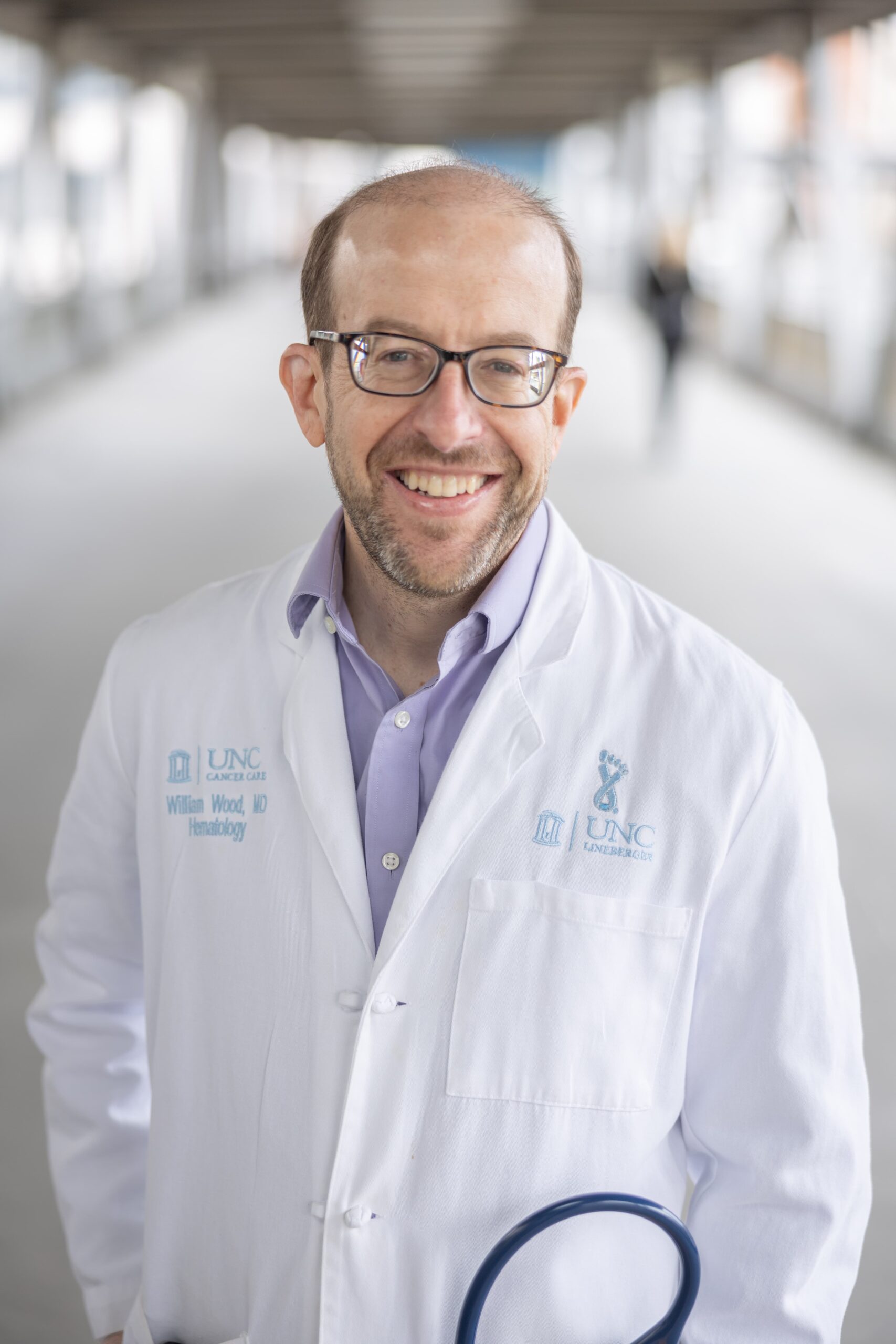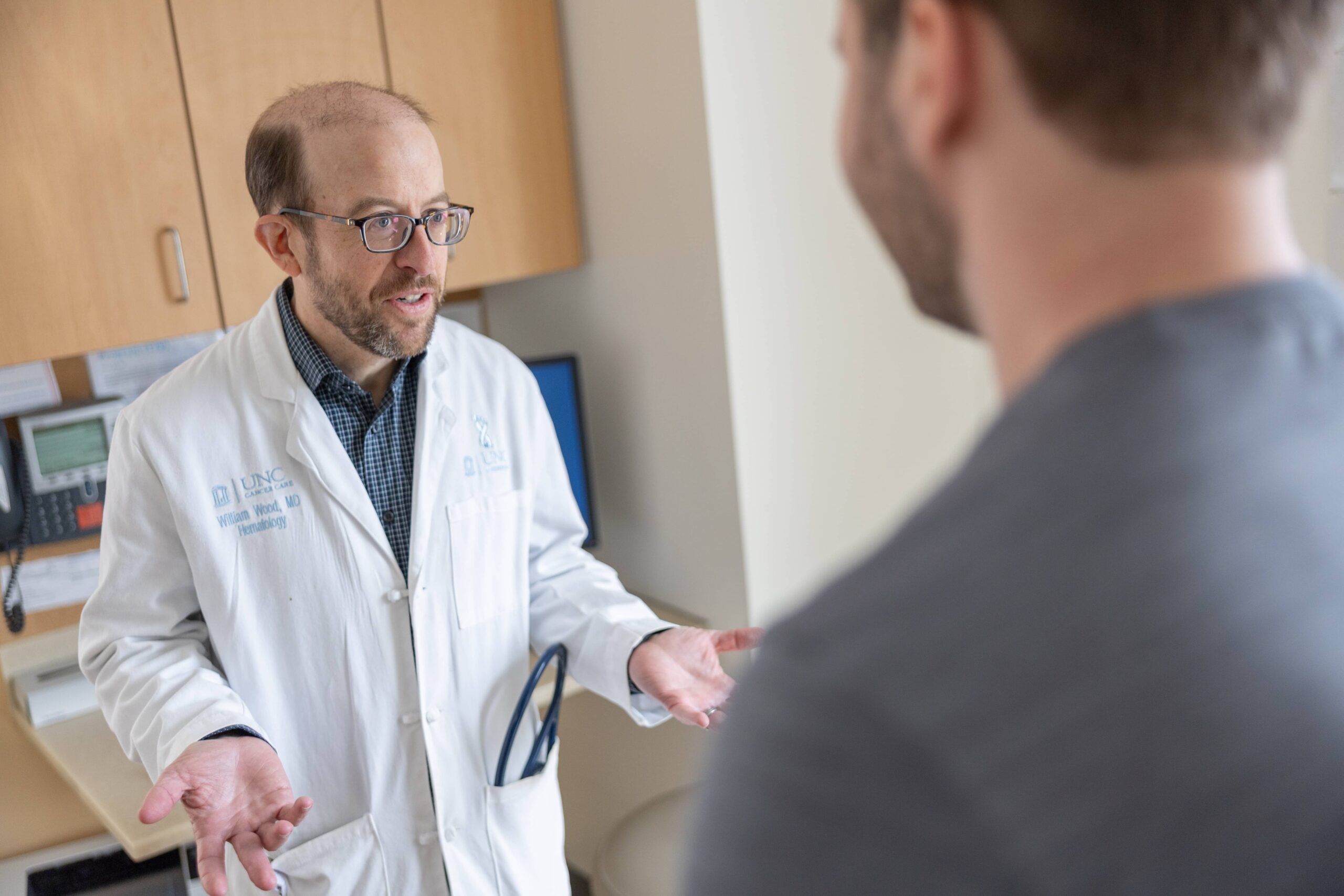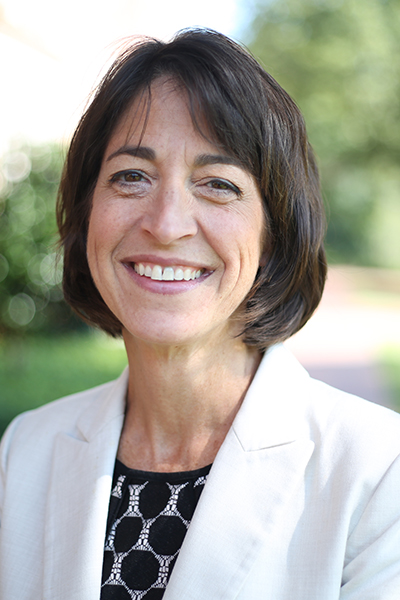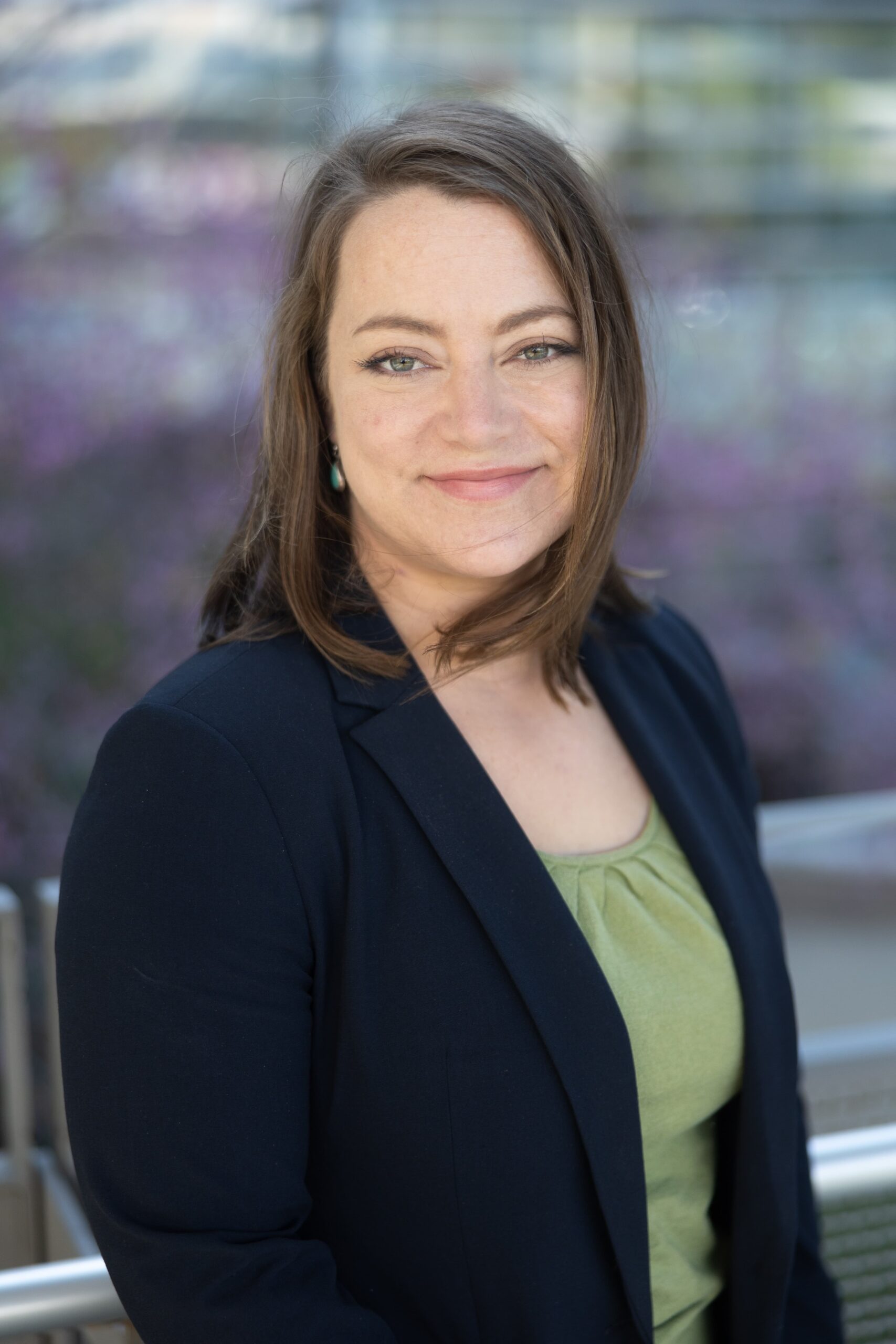
Using real-world data to transform cancer care to help make patients’ health care journeys smoother and less stressful – and then, putting that new model into practice in UNC Health hospitals across the entire state – is a challenging job.
UNC Lineberger’s Bill Wood, MD, MPH, with his ability to focus on the smallest details without losing sight of the big picture, is the perfect person to lead this transformation.
When explaining why this new model – called a centralized navigation system – is so important for patients and for health care providers, Wood chooses his words with the same kind of careful precision he brings to the task itself.
“The need for navigation reflects the types of needs that we, as clinicians, see in our patients. We provide high-quality care, but there is so much more we could be doing to support all our patients’ needs,” said Wood, professor of medicine at UNC School of Medicine and a national leader in digital health. “Through investigation, research and a rational approach, we can use our findings to improve the delivery of care for all our patients.”
Patient navigation has come a long way since its first iteration more than a decade ago. UNC’s original nurse navigator programs were clinic-based, focused on ensuring that cancer patients were able to access appropriate therapies throughout their treatment. Often, navigation also considered factors outside the clinic, such as lack of transportation or a need for financial assistance, that might make it difficult for some patients to get the care they need.
Since then, this more holistic view has been built into the navigation system in a more structured way. It’s also become more proactive, with navigators placing phone calls to patients well before their first appointment to help smooth the path toward treatment.

Wood said this approach was a byproduct of the COVID-19 pandemic. “People were isolated and at home, so we did outreach initially to just make sure people were OK,” Wood said. “We soon came to realize that the health system itself could benefit from this type of outreach.”
Proactive patient outreach is becoming increasingly common nationally. UNC Health’s navigation system is unique, though, in the way it leverages population-level datasets and informatics tools to create a more personalized treatment and support plan for each individual patient.
Funding support is critical to sustaining this impactful transformation. While many of the tools and infrastructure supporting navigation are up-front investments, incorporating their everyday use – and the findings they generate – into health care system operations is a continuous process that needs ongoing support.
UNC Lineberger’s Jennifer Elston Lafata, PhD, co-leader of the UNC Cancer Care Quality Initiative and improvement advisor with UNC Health, has developed several of the tools being deployed as part of this effort.

“Bill and I see eye to eye on providing tools that allow us to better understand the quality of care we deliver, and on working throughout the health system to close those gaps,” said Lafata, a professor at UNC Eshelman School of Pharmacy. “With this type of research, things don’t happen overnight – they can take a while. Bill is persistent, and he’s very committed to this vision.”
The vision, ultimately, is to use this evidence-based approach to enable a multidisciplinary team of researchers, clinicians, nurses, staff, and volunteers to provide proactive outreach and support throughout a patient’s cancer treatment – and beyond.
“Bill is always thinking about the next best way to do something – he’s never stagnant,” said Linnea Van Pelt, BSN, RN, OCN, LMBT, oncology patient services manager and a leader on the navigation team. “He’s always thinking about how we can study a new approach, make sure it’s effective, and then translate it back into practice. He’s really pushing the frontier.”
For Wood, pushing the frontier is almost a personal philosophy. Majoring in government at Harvard University, he found himself drawn to various political philosophers and the notion of doing what you can to help others live a good life. That’s what put him on the path toward a career – or perhaps more aptly, a calling – in medicine.

“I really believe that’s a worthwhile goal,” he said, “and I see medicine as a way to do that – to work in a profession of healing to help other people live the kind of lives they want to live.”
Wood earned his medical degree at Duke University and returned to Harvard for his residency in internal medicine and pediatrics. His more recent clinical and research work, which focuses on bone marrow transplants and cell therapy, enables him to help patients facing extremely complicated health issues.
As one who relishes identifying a need and then developing a solution, Wood saw that stem-cell transplant patients faced certain quality of life and health outcomes challenges. His longstanding interest in digital technologies and personalized health coaching led him to develop HealthScore, a clinically integrated health coaching program that supports patients with cancer during and after treatment.
Wood plans to integrate HealthScore into the navigation infrastructure, providing yet another powerful tool in a research-driven system that creates a unified, integrated, standardized yet tailored patient experience – and that ultimately leads to more positive health outcomes for all UNC Health patients.
“This work brings me full circle,” he said. “I reflect on this a lot, and I am so thankful for the opportunities I have to make a positive impact in someone’s life.”
Outside of work, Wood likes to spend time hiking with his family: his wife, Kelly, a pediatrician, and their daughters, aged 12 and 14. He also enjoys running and reading, especially books about philosophy and the history of science and medicine.
“It goes without saying that Bill is brilliant,” Van Pelt said, “but he’s so inspiring, and he goes out of his way to acknowledge other people and their contributions. He’s truly one of the most humble, genuine, and kind people I know.”
